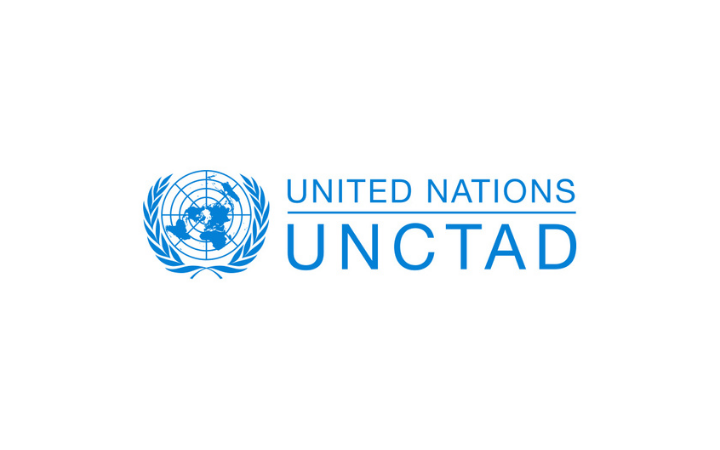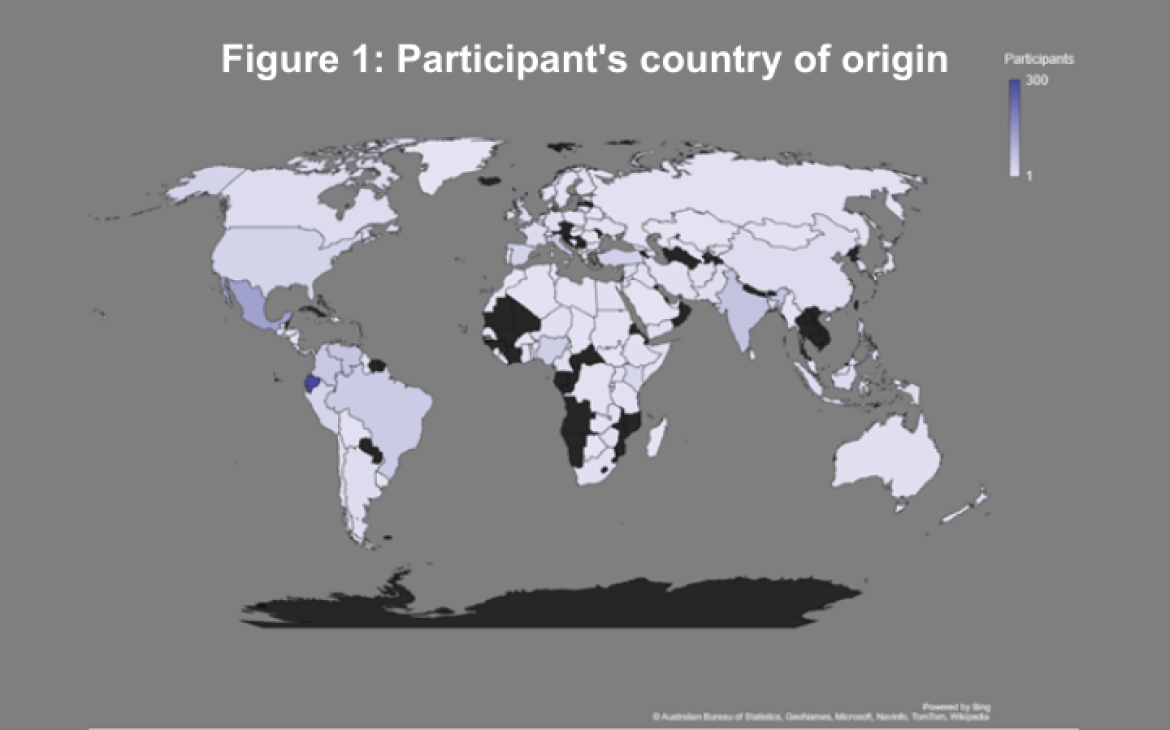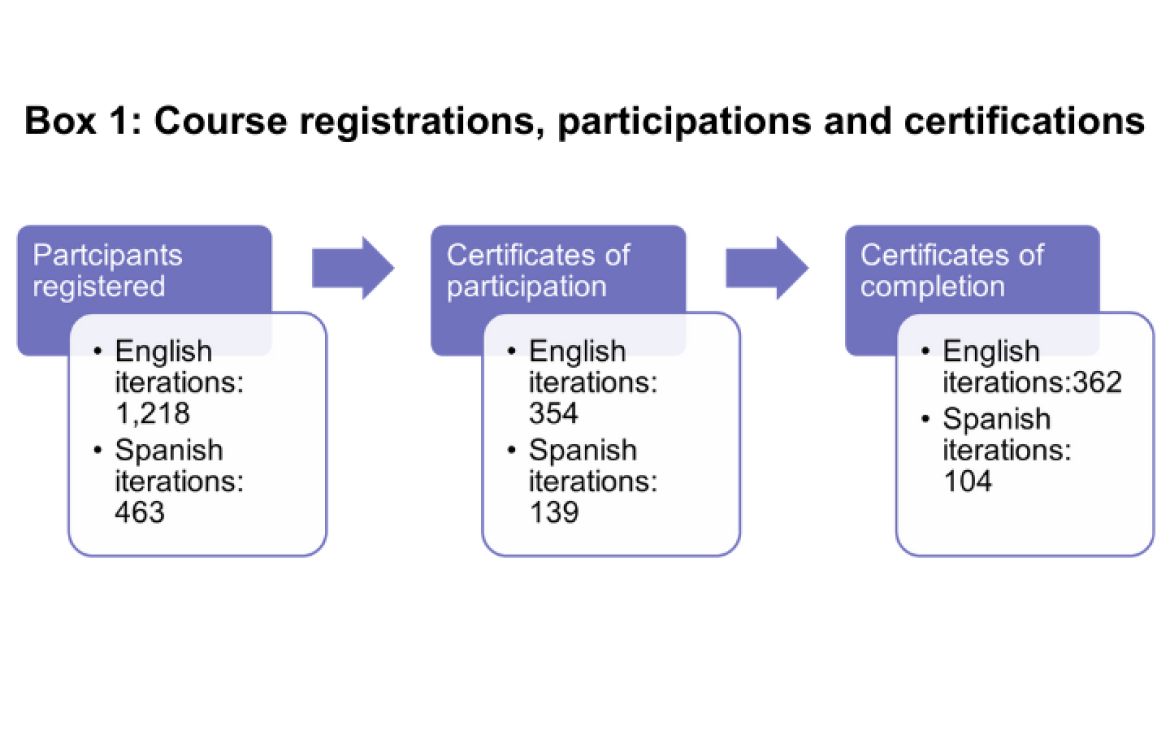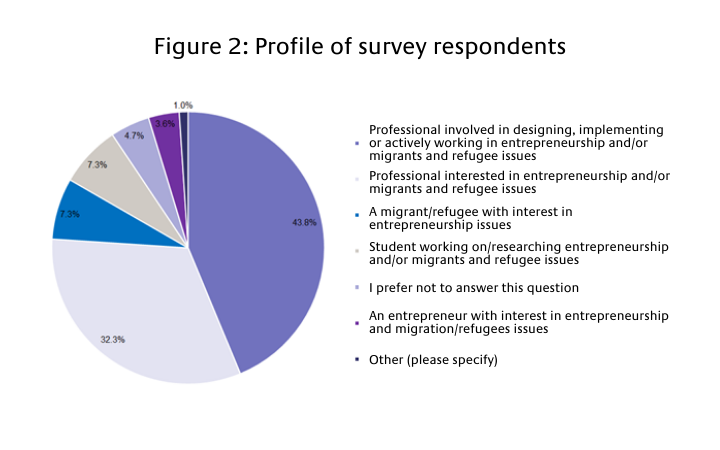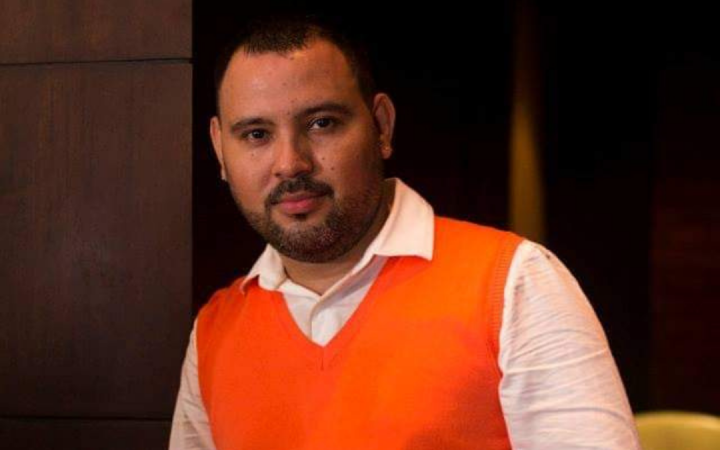Background
This Impact Story looks at the experiences of three participants from the e-learning course on “Entrepreneurship for migrants and refugees” which was launched in March 2020 as part of a joint initiative between the United Nations Conference on Trade and Development (UNCTAD), the Office of the United Nations High Commissioner for Refugees (UNHCR), the International Organization for Migration (IOM) and the United Nations Institute for Training and Research (UNITAR). The course is part of a series of e-learning courses developed by UNCTAD and UNITAR, and contributes to UNITAR’s strategic objective of promoting social inclusion and the empowerment of groups that have been marginalized and made vulnerable.
The course is aimed at strengthening the competences of professionals working on human mobility and entrepreneurship issues, with a view to overcoming some of the challenges to economic and social inclusion for migrants and refugees, by promoting entrepreneurship. The course welcomed participants from a variety of backgrounds, including public officers, NGO officers, entrepreneurs (some of whom were migrants, refugees or asylum-seekers themselves), students and people working in academia. The course content highlighted the potential contribution of migrant and refugee entrepreneurship in their countries of origin and host countries, the barriers and challenges of migrant/refugee entrepreneurship, the formulation of policy strategies and settlement of a regulatory environment.
To date, the course has completed ten iterations in four languages: English (5 iterations), Spanish (3 iterations), French (1 iteration) and Arabic (2 iterations). From this, four editions were launched in 2020, and seven in 2021. This Impact Story collects feedback from participants enrolled in the first four course iterations of 2020 (three in English and one in Spanish), with a cumulative total of 1,681 participants from 124 countries, as illustrated in Figure 1 below (1), including Ecuador, Mexico and India with the highest numbers of participants, respectively. Nine hundred and fifteen participants were female (57 per cent), 617 male (38 per cent) and 82 (5 per cent) identified with other genders. Furthermore, 28 per cent received a certificate of completion and 29 per cent received certificates of participation. Certification figures are presented in Box 1.
A previous self-evaluation exercise conducted upon course completion revealed that most participants found the course useful and relevant to their jobs. Moreover, 97 per cent, on average, intended to use the knowledge acquired during the course in their jobs. To confirm the application of knowledge and skills from the e-learning course, this Impact Story uses data from an online multilingual survey (English).
(1) Countries in black represent zero participation.
Application of knowledge and skills from the e-learning course
Thirty-five per cent of survey respondents participated in the Spanish edition of the course, while the remainder participated in one of the three English iterations. This section describes if, and how, survey respondents have applied knowledge and skills from the course in their professional, academic or personal lives.
In line with the beneficiary profile targeted by the course, most survey respondents were professionals involved in designing, implementing, or actively working in entrepreneurship and/or migrant and refugee issues (44 per cent), or with interest in migration and/or entrepreneurship (32 per cent). However, the e-learning course also attracted another group of beneficiaries, that of migrant and refugee entrepreneurs, or those interested in entrepreneurship (7 per cent). Figure 2 illustrates the profile of survey respondents, primarily young professionals (40 per cent) working in government, international organizations or local NGOs. Students represented a large proportion of the total number (7 per cent). On the other hand, respondents from the corporate sector represented the smallest number of participants (2 per cent).
The overall knowledge application rate of survey respondents was 80 per cent, which may be due to participants' engagement in the topics covered by the course. Notably, professionals and students directly working in migration and refugee issues, entrepreneurs and migrants and refugees themselves demonstrated the highest knowledge application rates, all above 85 per cent. Respondents also acknowledged the importance of the course for their professional or academic success. Eighty-one per cent of respondents found the course to be important for their job or academic success.
Survey respondents applied knowledge from each of the course topics differently. The topics with higher knowledge application rates include the barriers and challenges of migrant and refugee entrepreneurship, strategies on migrant and refugee entrepreneurship, the legal framework to support entrepreneurship among migrants and refugees and the contributions of migrants and refugees in host and countries of origin, as illustrated by the interviews below and the examples of knowledge application described by respondents, where a legal framework and strategies to support projects from migrant people were highlighted.
Examples of knowledge application as described by participants
I have improved the interview for refugee applicants. [He mejorado la entrevista a los candidatos a solicitudes de refugio.]
Government officer from Mexico
I have transferred the knowledge gained from this course to different local NGOs in the implementation of different projects related to IDPs and refugees.
Officer in an international organization from DRC
I advised an international organization in Colombia on the design of an entrepreneurship program for Venezuelan migrants. [Asesoré a una organización internacional en Colombia en el diseño de un programa de emprendimiento para migrantes venezolanos.]
Independent consultant from Colombia
We developed a management model for an entrepreneurship promotion center, which took into account the elements mentioned in the course. [Elaboramos un modelo de gestión para un centro de promoción del emprendimiento, que tomó en cuenta los elementos mencionados en el curso.]
NGO officer from Ecuador
Most respondents indicated impactful knowledge application derived from the e-learning course, which go beyond day-to-day tasks, with many reaching the level of policymaking, as shown in Box 2. Examples of applying knowledge from the course range from academic research (student and staff researchers) to public policy guidance (participants) and improved entrepreneurship experiences (migrants and refugees).
Furthermore, survey respondents attributed, on average, 68 per cent of their changed behaviour to the e-learning course.
While the rate of knowledge application for the course was high, some participants continued to face challenges such as availability of funds to strengthen their work with migrants and refugees, structural hierarchies in the workplace and time constraints. Interestingly, very few participants indicated not having the opportunity to apply the knowledge and skills from the course, which is only to be expected given the participants' profile. Comments from survey respondents indicated that although motivated to apply the knowledge learned and having the space and opportunity to do so, they still faced barriers to pursuing their ideas.
Such challenges are also reflected in the survey where respondents indicated the need to promote the course in government institutions and to include more experiences from practitioners from NGOs and independent consultants in the course content. Recorded videos from experts was also mentioned as a recommendation for future editions, as well as the inclusion of at least one interactive or live session at the end of the course.
William Ramírez
William Ramírez
Project Manager in an NGO
Creating entrepreneurship and managerial skills
San José, Costa Rica. William is a businessman from Nicaragua but has lived in Costa Rica for the last three years. Through a local humanitarian NGO, William has used his business and entrepreneurship skills to help Nicaraguan migrants and asylum seekers in Costa Rica to design and develop project proposals to help improve their livelihoods. The e-learning course helped William to better understand the international framework related to migrant entrepreneurship and to improve his own business practices. To-date, William has coordinated several projects and capacity-building sessions to develop business plans.
As a highly-skilled professional himself, when William arrived in Costa Rica three years ago, he decided that he wanted to work towards shifting the idea of asylum seekers as professionally and academically unskilled "victims" to people with the economic potential to benefit the host country and the migrants themselves. He wanted to share these ideas with organizations and government institutions. He also noted that it was difficult for many new asylum seekers to adapt economically and socially to their new country. Although asylum seekers received support from UNHCR for the first three months, many of them faced barriers to full settlement, such as restricted access to the financial market. William decided to use his business experience to help others. He started working for a humanitarian NGO supporting migrants by creating business plans and, in some cases, providing seed funding and mental health support.
Shifting his vision from a business to a social approach forced William to acquire new knowledge and skills. The e-learning course was one of the resources he used to prepare himself for this new journey. The course provided William with the “formal” tools necessary to back up the work he was already doing intuitively, in particular, an international legal framework promoting migrant (and refugee) entrepreneurship. Furthermore, the course motivated William to shift his focus from supporting and developing entrepreneurship skills to influencing, or at least offering insight into, public policy decision-making. Through his organization, William is part of a multi-actor working group which focuses on capacity-building for Nicaraguan migrants.
So far, William has coordinated three entrepreneurship projects, and covered some 50 business plans. Due to the COVID-19 pandemic, only 10 have reached maturity, but he plans to continue supporting and expanding all existing projects. COVID-19 also meant transferring technical assistance sessions online, which was a challenge considering that most beneficiaries live on the borders, or in rural areas, where internet connection is unreliable (or inaccessible). Fortunately, it was possible to create “technology classrooms” (aulas tecnológicas, in Spanish) - a space with IT equipment - to continue delivering training sessions.
The policy focus of the course was key to William’s participation in the working group. However, he believes that some public officers lack knowledge of international frameworks, which makes it difficult to improve migrant conditions and overcome barriers at the national level. William would like to continue studying the topic formally, especially the NGO approach to migration, which was not covered in the e-learning course.
➡️ Read William's story in Spanish here.
Chayan Chakraborty
Chayan Chakraborty
Faculty Member/PhD scholar – Sarsuna Law College
Transferring knowledge on migration issues to college students
Kalkota, India. Chayan is a faculty member at Sarsuna Law College and a PhD scholar at the West Bengal National University of Juridical Sciences (WBNUJS). His research at WBNUJS focuses on climate change and human migration (displacement) in India from a legal perspective at the national policy level. As a lecturer, he facilitates courses in International Law and Jurisprudence. According to Chayan, the entrepreneurship course was an eye-opening opportunity to combine his two areas of expertise, especially when teaching his students.
During his lectures on international law, Chayan incorporates insights from international environmental law. After taking the UNITAR-UNCTAD course, he seized the opportunity to explore this topic further and to include a session on the nexus of climate change and human migration. At the time of this conversation, Chayan had not yet delivered this session but he had already added it to his programme for the upcoming academic year in September 2021, moreover, he took the opportunity to encourage students to register for the course, some of whom have since taken his advice. Chayan plans to follow-up with them during this academic year to see if they are interested in further developing their work on migration issues.
The online course helped Chayan to expand his knowledge in other areas of migration that he had not previously looked into and which he now considers to have enriched his research. For example, he has redefined the concept of climate migrants and climate refugees in his research and has better knowledge of how to analyse the current policies in India. Understanding the implications of policy on migration has also helped him to structure his research. According to Chayan “the legal framework for refugees is not only about protection but also secure livelihood strategies” and the UNITAR-UNCTAD course is clear on that link.
Chayan valued the course design and layout and said it motivated him to finish the course. He would also love to see some follow-up courses incorporating the issue of climate migration.
Eleutherius Michaelides
Eleutherius Michaelides
Entrepreneur – Owner of a start-up
Strengthening entrepreneurship skills
Madrid, Spain. Eleutherius is an entrepreneur with extensive experience in apparel manufacturing and audiovisual production (film, music and photography). His two companies are an evolution of the family businesses, a long-standing tradition in the audiovisual and textile sectors, which started with his grandparents in the 1950s. For Eleutherius, continuing and supporting the family is one of the most powerful drivers of building a business for every immigrant.
He has lived in Spain for the last three years and decided to enrol in the course as part of his plan to integrate the Spanish business ecosystem. Besides the UNITAR-UNCTAD course, Eleutherius has participated in many other learning opportunities, including the Erasmus for Young Entrepreneurs programme. Despite his broad professional experience, Eleutherius says the course helped him take the necessary steps to consolidate his business in a new country and to finally achieve his objective of rebuilding and modernizing the family businesses, and updating practices for the 21st century global market.
When moving to Spain, Eleutherius was looking for capacity-building programmes to help him understand broader business integration frameworks for migrant people. Currently, Eleutherius’ enterprise is integrated and managed by one of the best social cooperatives in Madrid (2), it is aligned with the UN SDGs and focuses on sustainable garment manufacturing. The course provided Eleutherius with a broader view of the potential financial instruments he could access to sustain and promote his business. Now, as a member of a cooperative, he can access financial services despite not having a large employment record in the country, as the institution serves as an intermediary guarantor. Information and confidence on financial issues were not derived from the course alone, since Eleutherius has also received financial consulting support previously, even though module 3: “Improving access to finance” was the most impactful section for Eleutherius. He has also shared information from the course informally with women in the cooperative and encouraged them to sign up for a future edition.
Eleutherius would like to learn more about management from an entrepreneurship perspective, such as SWOT analysis and legal support for entrepreneurs.
Conclusion
The UNITAR-UNCTAD series of e-learning courses welcomed participants from a variety of backgrounds, with learners working directly in fields related to migrant and refugee entrepreneurship. Although the courses’ key target audience was policymakers, it attracted participants from NGOs, migrants, refugees or asylum-seeker entrepreneurs, who say the course was beneficial to them and that they were able to apply the knowledge learned, as highlighted in the interviews and examples above. Participants said that their changed behaviour could be attributed to the course, but that in some cases, it was difficult to apply new knowledge due to workplace hierarchies and restrictions.
Many experiences of knowledge application expressed in the survey go beyond improved work practices, some also mention action points for improving the conditions of migrant entrepreneurship (results).
Participants repeatedly mentioned promoting the course in government institutions. As practitioners, they found that many public officers were not aware of the challenges and opportunities related to migrant entrepreneurship, and many ignore the international treaties and legal frameworks available in this regard.
Evidently, there is a demand for training in migration and entrepreneurship. Survey respondents indicated the topics that they would like to pursue in follow-up editions, which included climate migration, managerial skills for migrant entrepreneurs, sustainability of business plans, and more local experiences (good practices).


